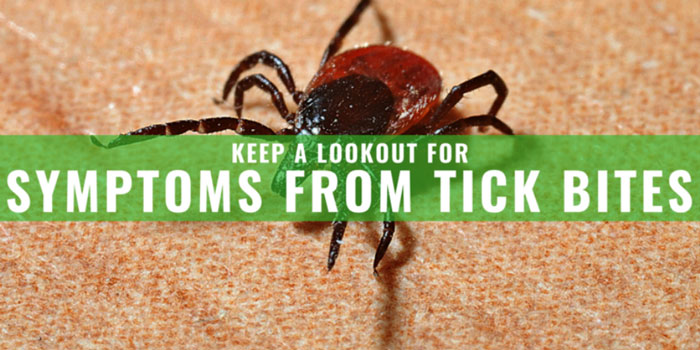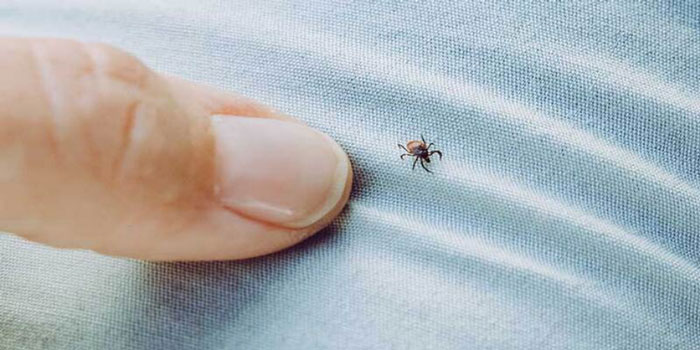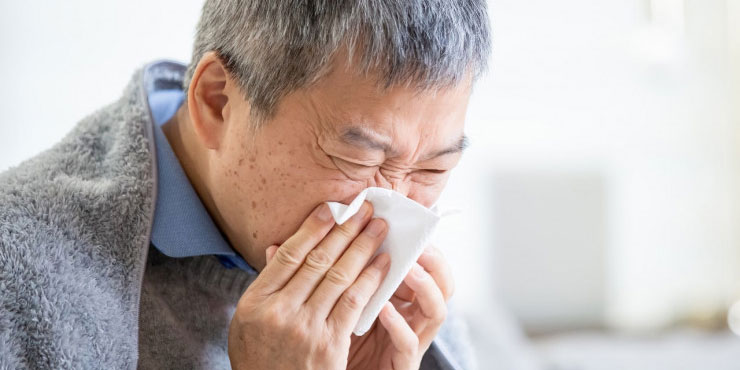Ticks And Tick-Borne Illness: What You Need To Know
Dec 06, 2023 By Nancy Miller
Ticks, which belong to the arthropod family, are standard worldwide. Lyme disease, Rocky Mountain spotted fever, and tick-borne encephalitis are just a few of the illnesses they are known to spread to humans. Ticks are a pest that thrives in grassy or wooded areas and loves to latch onto passing humans and animals. Avoiding tick-infested areas, employing insect repellent, and performing post-excursion tick checks are all effective means of avoiding contracting a tick-borne illness. Ticks can transmit diseases, so using tweezers is essential to remove them as soon as possible. See a doctor if you start experiencing symptoms like fever, headache, muscle aches, or a rash. While antibiotics may help with some tick-borne illnesses, it's crucial to see a doctor quickly after noticing symptoms.
There Are Ticks On Every Continent
Ticks may be found on every continent in the world, with the exception of Antarctica. In spite of the fact that you have a better chance of seeing one in a rural setting than a park in the city, these critters are more at home in more natural settings. Even while ticks may be discovered at any time of the year, they are more common during the spring and summer months when the weather is warmer and the humidity is higher.
Ticks Can Spread A Variety Of Diseases
Ticks are known to spread a variety of diseases, including Lyme disease, Rocky Mountain spotted fever, and ehrlichiosis, among others. Ticks that have these infectious diseases may transmit them to people via their bites. Before a tick may transmit a disease to its host, the tick must first be attached to the host for a period of time that might range from a few hours to many days. Tick-borne infections may result in a broad variety of symptoms, including a high fever, acute tiredness, and even a rash. These symptoms can vary from mild to severe.
The Most Frequent Tick-Borne Infection Is Lyme Disease

Humans contract Borrelia burgdorferi, the bacterium that causes Lyme disease, when infected ticks bite them. Cases have been reported in every state, but the Northeast is where the condition is at its highest concentration. Lyme disease can cause various symptoms, including fever, headache, and fatigue, in addition to the telltale "bull's eye" rash. Serious complications can arise from not treating the disease, including the spread to the joints, heart, and nervous system.
Ticks Are Notoriously Difficult To Detect
Ticks attach themselves to the skin and are hard to see because of their size. They typically aren't much bigger than a sesame seed or a poppy seed and can be hard to spot when up against the skin. Even though ticks can attach themselves to any part of the body, they tend to congregate in places with thin skin, like the armpits, groin, and scalp.
Ticks Can Be Removed With Fine-Tipped Tweezers
Remove any ticks you find on your body as soon as possible. If a tick is attached to your skin, the best way to get rid of it is to grab it with a pair of fine-tipped tweezers as well as pull it straight out. If the tick is twisted or jerked, its mouthparts could break off and become embedded in the skin. After a tick has been removed, the bite site should be disinfected with rubbing alcohol or dish soap.
Tick Bites Can Be Prevented

Several measures can be taken to lessen the likelihood of a tick bite. Some examples are:
- Walking in grassy or wooded areas while clad in long sleeves and pants.
- Insect repellent containing DEET, picaridin, or IR3535.
- After being outside, checking for ticks on your body is essential.
- Maintaining a clean and tidy yard entails cutting back on overgrowth and cleaning up fallen leaves and twigs.
- Fortunately, antibiotics are effective against Lyme disease.
- It's crucial to get checked out immediately if you've been bitten by a tick and may have contracted a tick-borne illness. In most cases, a course of antibiotics will cure Lyme disease, but the sooner you get started on them, the better.
Conclusion
Finally, ticks are tiny arthropods that can cause serious illness in humans by biting them. Avoiding tick habitats, donning insect repellent, and conducting post-outing tick checks are all effective ways to lessen the risk of contracting a tick-borne illness. Tick bites should prompt tick removal and medical attention if symptoms, such as a fever or rash, appear. More severe complications may be avoided if treatment begins early.
-
 Condition Nov 11, 2023
Condition Nov 11, 2023What You Should Know About The Early Signs Of The Flu
Tickling in the throat, body pains, and a sudden increase in temperature are some of the earliest signs of the flu. Each year, the flu can affect up to 20% of Americans. When you recognize the signs, you can begin taking important steps toward self-care
-
 Condition Oct 02, 2023
Condition Oct 02, 2023Melanoma: Identifying Cancerous Moles and Their Causes
With melanoma being the most lethal form of skin cancer, understanding the symptoms, causes, and preventive measures is paramount.
-
 Condition Nov 14, 2023
Condition Nov 14, 2023What The Epidemic Taught Us About Stress And Psoriasis
Psoriasis is a skin condition characterized by chronic inflammation. Plaques, patches of dry, flaky skin, are the hallmark of the most prevalent form of psoriasis. Some persons with psoriasis also develop psoriatic arthritis, which causes joint discomfort and stiffness. People living with Psoriasis may have seen a worsening of their symptoms during the recent COVID-19 pandemic
-
 Prevention Aug 19, 2024
Prevention Aug 19, 2024Struggling with Skin Picking? Here’s How to Break the Cycle!
This article explores effective strategies for managing skin picking behaviors through mindfulness, support, and creative outlets.
